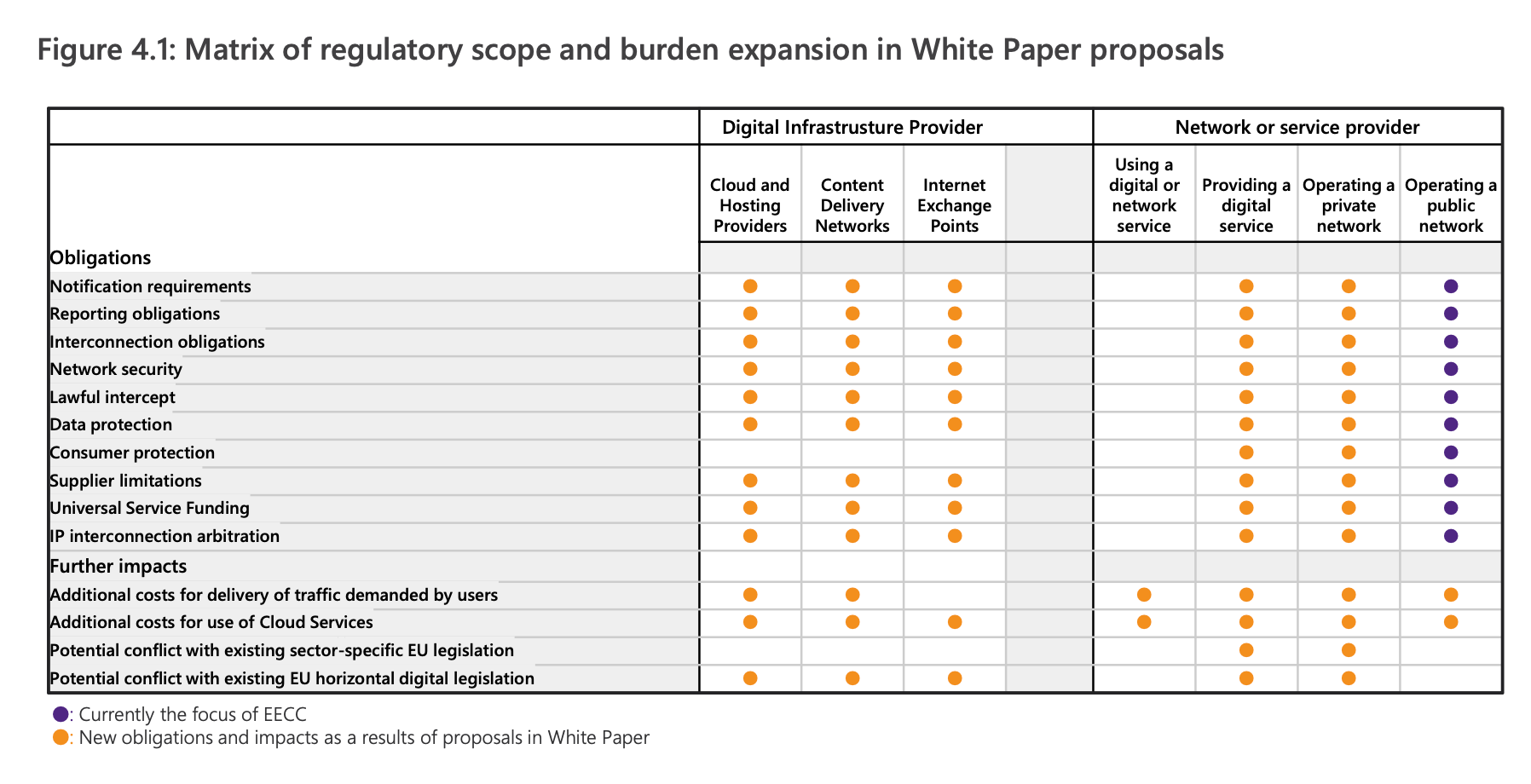Bad ideas resurface: expanding telco rules to digital and cloud and rebirth of 'fair share'
Brussels is back to business, so are the discussions on the European Commission’s White paper “How to master Europe’s digital infrastructure needs.”

Brussels is back to business, so are the discussions on the European Commission’s White paper “How to master Europe’s digital infrastructure needs.” More than 300 participants recently provided feedback on the Commission’s consultation on this paper, and national experts will soon discuss this feedback.
The white paper discusses many important ideas, such as the reevaluation of security principles for submarine cable infrastructure, the scaling of the EU’s telecommunications market (often resulting in a heated debate), the investment needs for the rollout of 5G, and more.
Two ideas — extending legacy telecom rules (European Electronic Communications Code) to cloud and digital services and the reincarnation of 'fair share' in a more elegant form need special attention.
The idea to extend the EECC to digital and cloud services reportedly already received a cold welcome from consultation participants, with 54.3% opposed, 35.2% in favor, and 10.5% remaining neutral.
Regulation on top of existing regulation
The proposal to extend the EECC would not only target providers of digital services (be it a big platform, train app, or gaming app) but also operators of private networks who build them for their own use.
The notion that digital and cloud services are not being as regulated as the telecom market is simply incorrect, since they are regulated by a number of relatively new regulations, such as the NIS2 directive, Digital Operation Resilience act (DORA), Digital Markets Act (DMA), Digital Services Act (DSA), the EU Data Act and more.
While Mario Draghi was applauded by the Brussels bubble for criticizing tech overregulation during the previous mandate, this proposal can only be seen as back to European ‘business as usual’ - an additional layer of regulation on top of the existing ones.
Criticisms of EU-style overregulation of tech & compliance costs are often met with a smirk in Berlaymont, yet Plum’s matrix of increased regulatory scope leaves no further questions (See picture below).

Rebirth of ‘fair share’: arbitration & network (usage) fees
European telecom operators have long lobbied for the 'fair share' concept — the idea that large Content Application Providers (CAPs, think: websites, media platforms, and video streaming services) should directly contribute to the network infrastructure costs of Internet Service Providers (ISPs, think: telecoms), as they generate the majority of internet traffic. This idea did not receive widespread support and was postponed in 2023.
It has resurfaced in a more subtle and elegant form in the white paper, proposing the introduction of new arbitration mechanisms for IP interconnection disputes, which could essentially transition from free peering (think: two networks exchange traffic directly without charging each other) to paid peering (think: digital service providers pay internet services providers for exchanging traffic).
Long story short: there are no major disputes and no market failure, but telecom operators need money.
Impact and questions
Compliance costs will be shared with consumers. To put it very simply, if CAPs need to pay additional fees to ISPs, the additional costs will have to be paid by someone - usually it’s the consumer via subscription fees and additional charges.
Continued preferential treatment for the EU’s telecom giants. Some of the ideas in the white paper, along with the ongoing debate about the consolidation of the European telecom market ( reducing the number of mobile operators and helping the larger ones to scale), Letta’s specific proposal to allocate the upper band of 6GHz to mobile telecommunications — shows a significant preferential treatment for large European telecom operators, at the expense of the competitive, consumer-oriented market Europeans enjoy today.
Competition? Entry barriers for small companies. Despite numerous talks about the 28th regulatory regime and red tape cuts for innovative small and medium enterprises, the extension of EECC to digital and cloud services and eventual legal costs will be the most painful for the small ones (see the compliance picture above).
Consumers are already protected. The consumers of digital and cloud services are sufficiently protected by a number of relatively new regulations - the Digital Services Act (DSA), Digital Content Directive, Consumer Rights Directive, Unfair Commercial Practice Directive, Product Liability Directive, and more - therefore the comments on the necessity of additional regulations are questionable.
Overregulation of tech: the Commission is not walking the talk. Mario Draghi was right to emphasize the overregulation of tech in the EU, and while Ursula von der Leyen detailed plans (or concepts of plans) to cut red tape with her new cabinet in her political guidelines, ideas like extending the EECC to digital and cloud services seem somewhat contrary to that message. The digital and cloud services market has already experienced an unprecedented wave of new regulations over the past five years, and the EU should follow through on its commitments by focusing on proper, fair, and adequate implementation, rather than adding new regulations on top of existing ones.

